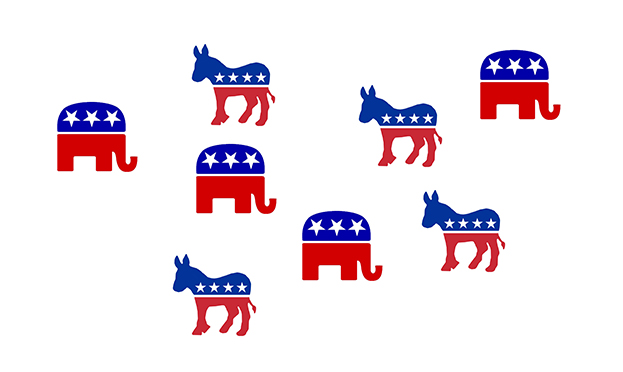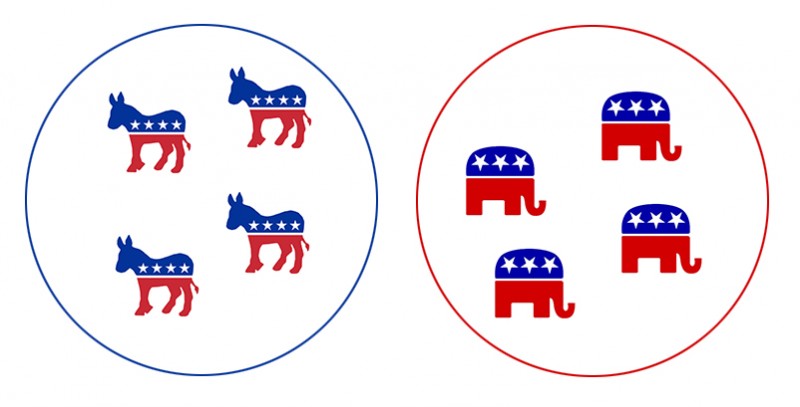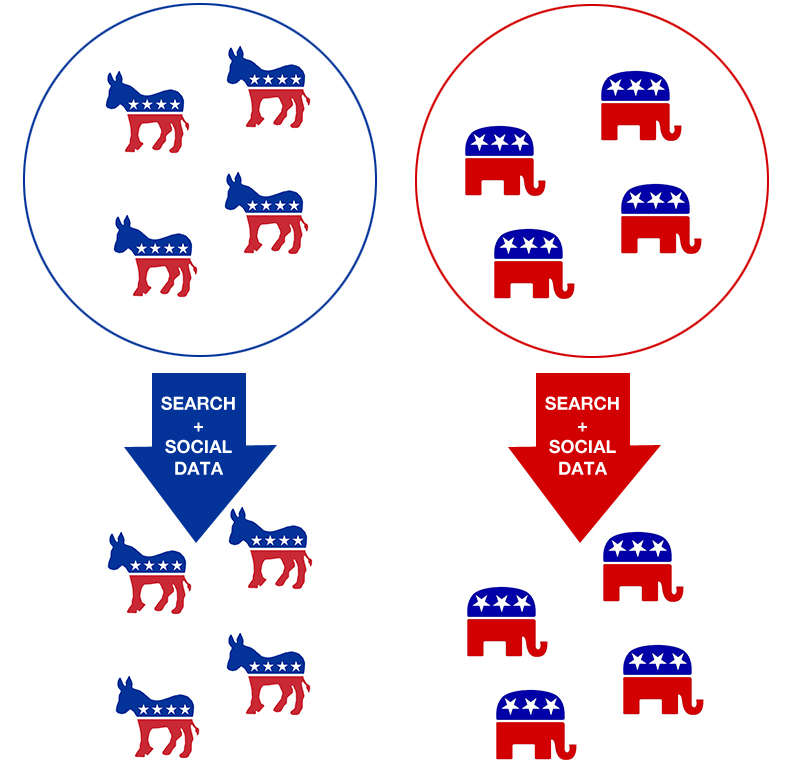There have been changes in Google search and Google analytics. There have been many discussions on this topics. But there’s one big problem that I see with adding the social dimension to search: community bias or, as we’ve been referring to it in class, cultural bias. Cultural bias is one of the sources of human errors that render problem-solving more difficult. The problem comes from having one’s views on highly charged emotional topics (or social issues) continuously reinforced by the community. I’m writing this blog on Martin Luther King Day — particularly appropriate when discussing cultural bias and the difficulties of overcoming them.
In the past, when we googled something, we got results based on the relevance to our query. This relevance had little to do with us personally and focused on the topic of interest. Google results to a politically polarized question looked the same whether one was a Democrat or a Republican:

It didn’t matter that Democrats tended to socialize with like-minded individuals — meaning other Democrats. And Republicans preferred other Republicans, creating segregated social circles. In each such circle, people met, talked, and reinforced each other’s beliefs. BUT the Google results were the SAME for each group, regardless of what politics or religion they practiced.

All this is changed with the introduction of Google + data into the search results.

Now the search results will be different depending on who your friends are! The results are no longer unbiased but heavily favored towards what you already believe in and who your friends are and what they believe in.
While some might find this reassuring — it’s great when the world agrees with you — I’m extremely concerned. I want the truth, irrespective of what I personally believe in or want to believe in. Truth independent of the observer.
